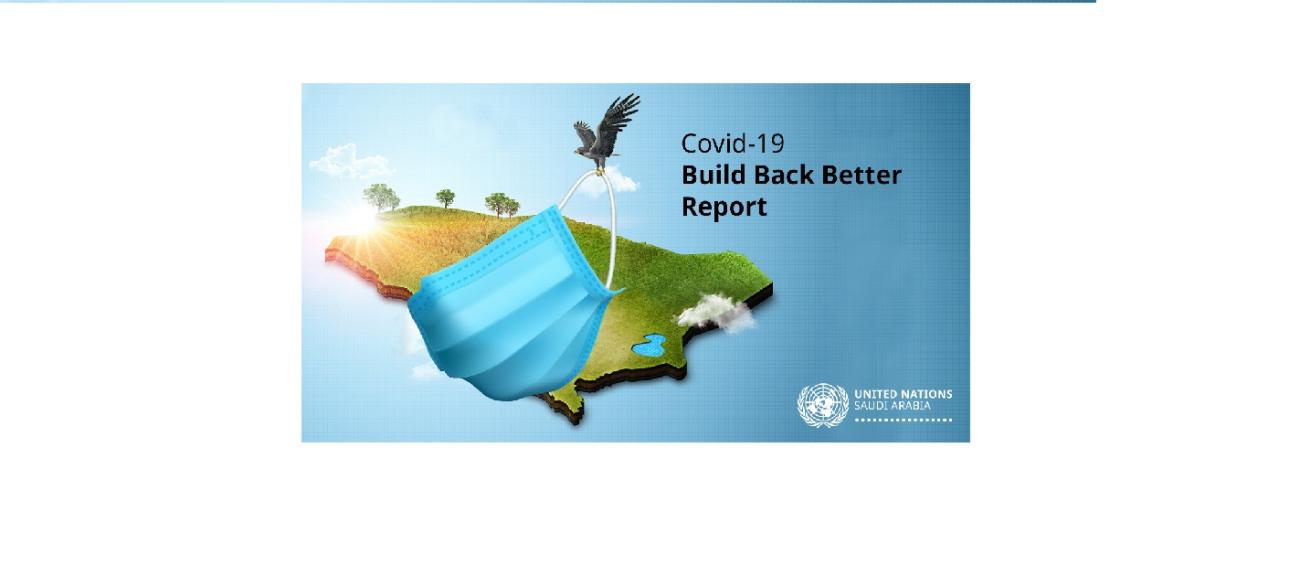United Nations in Saudi Arabia in Partnership with Prince Sultan University Launch a Report on Socio-Economic impact of COVID-19 in the Kingdom of Saudi Arabia

The report has been developed as a One UN report, with full involvement of United Nation Country Team (UNCT) members in Saudi Arabia.
- The report and its executive summary are available here
The Report summarizes the economic and social landscape of KSA with a focus on the impact of COVID-19 and the oil price crisis, utilizing the leave no one behind (LNOB) lens, and further enlarges the set of possible UN support and policy recommendations, including the ones already included in the earlier UN in KSA COVID-19 Capacity Brief. This assessment, analysis and policy recommendation set, with a particular focus on the most vulnerable groups, is based on the five development pillars highlighted in the UN Framework for Immediate Socio-economic response to COVID-19 which set out the framework for the United Nations’ urgent socio-economic support to countries and societies in the face of COVID-19, in alignment with the UN Secretary-General’s Shared Responsibility, Global Solidarity report.
The report has been developed as a One UN report, with full involvement of United Nation Country Team (UNCT) members in Saudi Arabia. It was coordinated under the leadership of the Resident Coordinator through the Resident Coordinator Office (RCO), with the technical lead of United Nations Development Programme (UNDP), and in partnership with Prince Sultan University PSU.
The report is divided into three separate parts. Part I, “The Starting Point”, establishes the pre-crisis profile of KSA, providing a baseline on the macroeconomic and social structure. The section mainly deals with, economic and social analysis of the Kingdom before the pandemic. Areas covered in this section include country’s situation, before the pandemic, related to food security and nutrition, health, education, gender, development, poverty, inequality, and vulnerable and at-risk population. Moreover, structure of GDP as well as structure of the budget, external sector, monetary policy and labor markets are covered. Part II, “Size of the shock”, aims to quantify the size of shock to economy and key social and economic factors, stemming from dual impact of low oil prices and COVID-19 pandemic, following the structure of Part I. Finally, Part III, “Response and Recovery”, discusses the major leading initiatives taken by KSA and offers policy recommendation on Building Back Better with the full support of the UN, helping the Kingdom become even more resilient for possible future similar shocks, for all the population.
In other words, the report provides an overview of the applauded response and recovery measures put in place by the government of Saudi Arabia and showcases key areas of possible intervention offers for One UN to bring value added and contribute to strengthening the response by the government to the short and long-term socio-economic consequences of the COVID-19 pandemic, with a particular focus on the most vulnerable.
The United Nations anticipates that the Report will serve as a catalyst for dialogue on how Saudi Arabia can continue to accelerate progress towards achieving Vision 2030 and the Sustainable Development Goals under these new conditions.
The United Nations Resident Coordinator, Ms. Nathalie Fustier highlighted:
“This One UN report is intended to support the efforts of the Government to further mitigate the effects of COVID-19 on the economy and society, with the most vulnerable segments of society in mind. By leaving no one behind in our efforts KSA can accelerate on its path towards achieving the UN Agenda 2030, SDGs and Saudi Vision 2030.”




